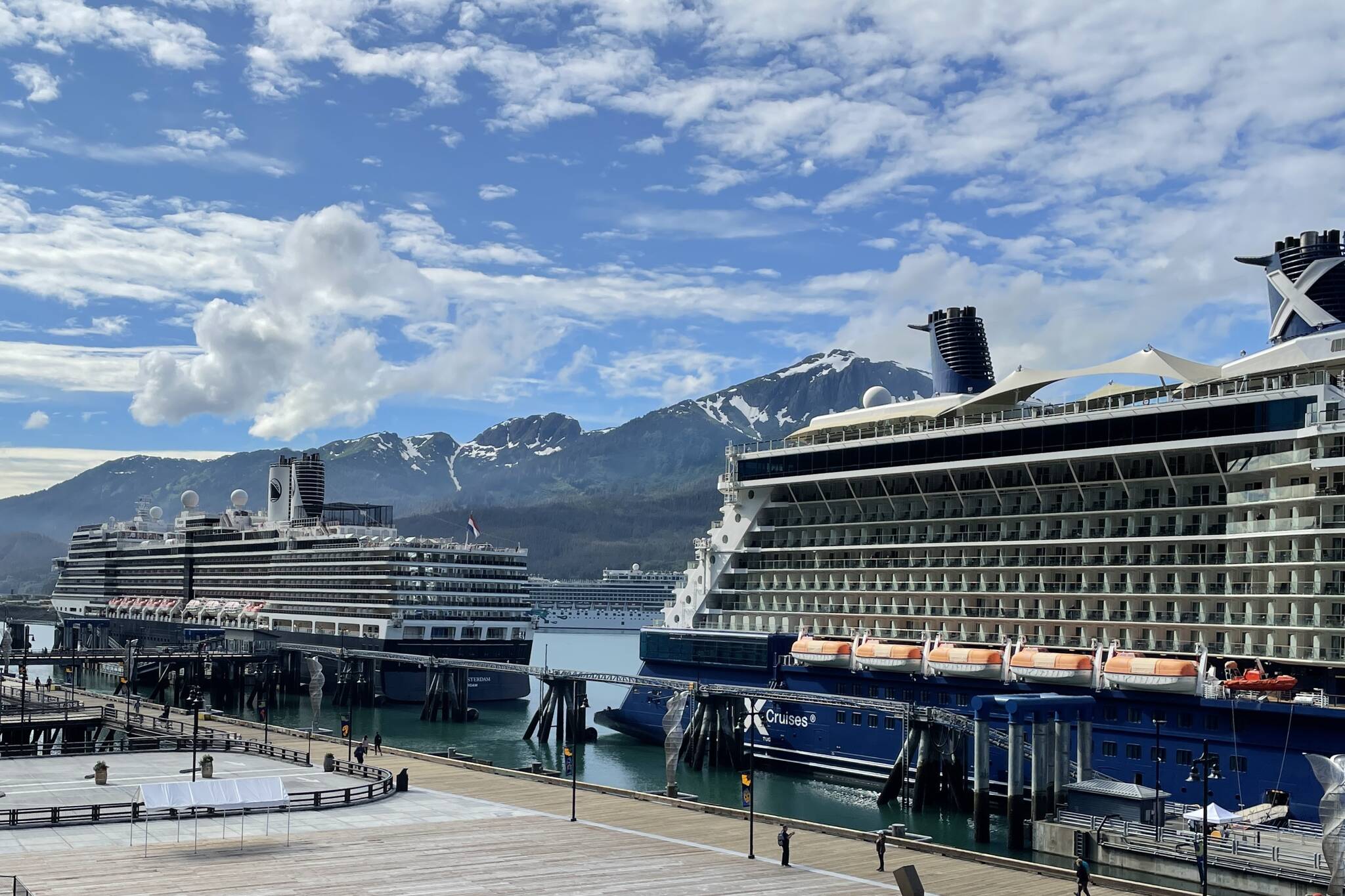A program run by the Centers for Disease Control and Prevention to provide information about the COVID levels aboard cruise ships has ended.
The program was discontinued due to varying screening standards between cruise lines, according to the CDC.
“This is an overdue announcement, but one that I welcomed when I heard from Director Walensky at the CDC,” said Sen. Lisa Murkowski, R-Alaska, in a news release. “I have been pressing the CDC for months to be reasonable and not single out one industry with undue burdens.”
[Most major nations lag in acting on climate-fighting goals]
The cruise industry has been hard-hit, Murkowski said, with the 2020 season completely scrubbed and 2021 partially reopened. 2022 has seen a return to the normal number of hulls visiting Juneau, though the Empire recently reported that the passenger amounts are averaging around 68% of capacity.
“While the CDC stood down a specific program related to cruise ships, it maintains guidance for cruise ships that continue to be relevant in our port agreements with each cruise line,” said Juneau’s Deputy City Manager Robert Barr in an email. “I don’t believe the specific program the CDC stood down will impact us or our port agreements with each line in a way that would be meaningfully different than if the CDC had maintained the program.”
The industry has been in the spotlight since the beginning of the pandemic, including several high-profile instances of infection clusters before the advent of vaccines and effective quarantine policies.
“Since the CDC has allowed cruise operations to fully restart, the industry has stepped up to the plate to meet all health and safety requirements, and in many cases the industry has gone above and beyond the CDC’s required mitigation measures,” Murkowski said. “The protocols from the CDC singled out the cruise industry and were not required for any other mode of transportation or hospitality industry.”
Respiratory infections like the virus that causes COVID-19 are able to spread easily in congregate settings such as aboard ship, the CDC said in its cruise ship guidance.
“There is no doubt COVID aboard cruise ships just as there is COVID spreading locally and abroad. We don’t have a way to determine if local COVID is being driven by ship traffic or the reverse,” Barr said. “From the perspective of transmission, COVID spreads best in close indoor settings when people are not masked. The most important thing for residents to do is to ensure they are up-to-date on all recommended vaccine doses as well as maintain an awareness that if they or a friend/family member get COVID, there are highly effective and recommended early treatment options.”
Juneau has agreements with the cruise lines that infected passengers and crew will be quarantined aboard ship in the event of an outbreak, agreements that have come into play at least once this season.
“Alaska’s cruise partners have adhered to CDC guidance, often implementing complicated COVID-19 restrictions far exceeding guidance other sectors of the travel industry have needed to meet,” said Sarah Leonard, President & CEO of the Alaska Travel Industry Association, in the news release. “By lifting the COVID-19 program, the CDC is allowing the cruise industry to return to full operations, safely and reasonably managed.”
Industry notables also commented favorably on the stand-down of the program. Accuracy of COVID numbers has recently become more difficult to nail down, the Empire previously reported, as testing shifts more and more to at-home testing.
“Princess Cruises and Holland America Line appreciate all of the hard work by Senator Murkowski and Senator Sullivan to put tourism in Alaska on equal footing with other vacation destinations around the country,” said Jan Swartz, group president of the Holland America Group. “These positive changes are a result of their dogged determination and advocacy with the Administration and CDC and thanks to their support, we are confident that we will continue to be able to show the Great Land to visitors for years to come.”
The move comes a little more than a month after the CDC rolled back an order requiring negative pre-departure COVID tests for travel to the U.S.
“I welcome this announcement on behalf of the Alaskans that rely on the tourism industry and all those who wish to adventure by way of cruise ship,” Murkowski said. “This is encouraging news, and one more step toward ‘normal’.”
• Contact reporter Michael S. Lockett at 757-621-1197 or mlockett@juneauempire.com.

